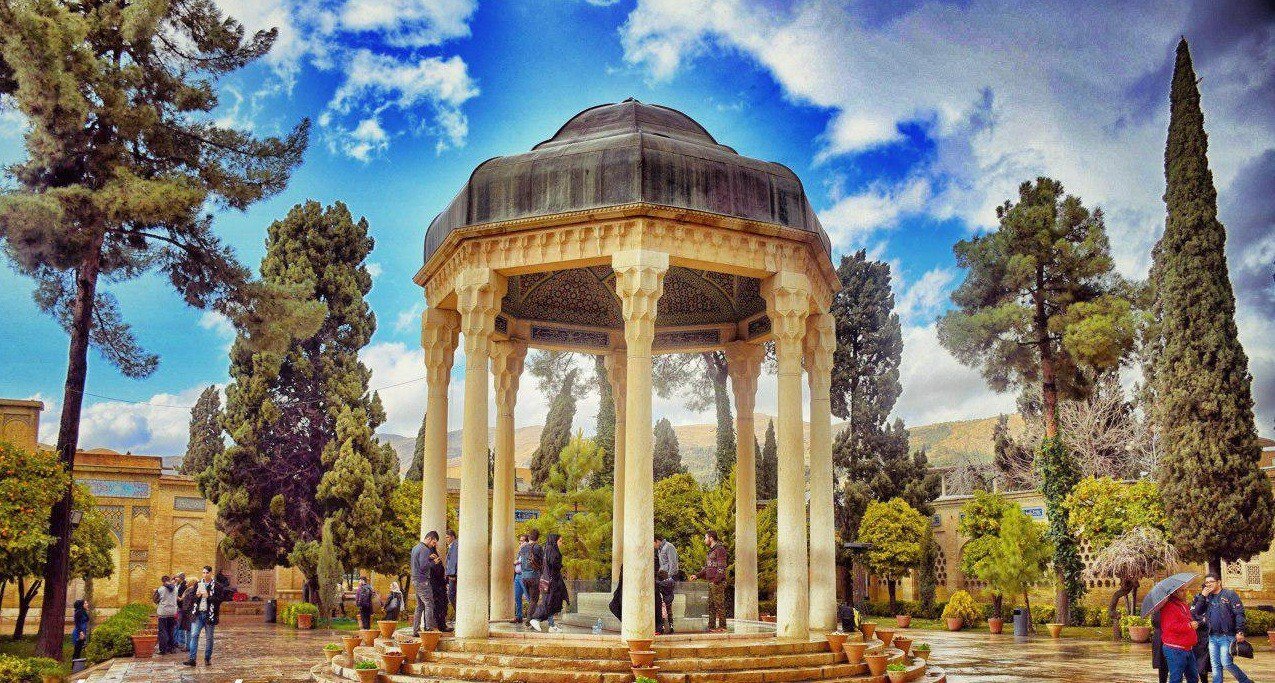Artistic performances, academic discussions planned for 28th Hafez commemoration week

TEHRAN-October 12 is named National Hafez Day in the Persian calendar. It is a day in which the great Persian poet Hafez is honored in Iran. Every year Hafez Commemoration Week is held during the week leading to Hafez Day. However, “this year, due to the various programs planned for the event, the 28th Hafez Commemoration Week begin sooner on September 27,” said the director general of Department of Culture and Islamic Guidance in Fars Province on Tuesday.
Addressing a press conference in Shiraz for the 28th Hafez Commemoration Week, Hamidreza Ghanei said that this year's events are split into two primary categories: cultural and artistic performances as well as academic discussions, IRNA reported.
The event is to honor the life and poetry of Hafez, the renowned 14th-century Persian poet. Known for his mystical and lyrical ghazals, Hafez remains one of the most celebrated poets in Persian literature. Each year, various programs are held across Iran to celebrate his contributions to Persian culture.
The cultural programs include performances at the Hafez Tomb in Shiraz, where a play titled “Lisān al-Ghayb” directed by renowned Iranian actor and director Mohammad Hatami will be staged.
Among Iranians, Hafez is known as “Lisān al-Ghayb,” literally meaning someone who knows about hidden secrets.
“Additionally, the recently renovated Hafez Hall in Shiraz will host a symphony concert in tribute to the poet, marking the official reopening of the venue. The concert will feature a blend of classical Persian music and symphonic compositions inspired by Hafez’s verses,” Ghanei added.
Several other special musical tributes are also planned. An album titled “Khalvat-Neshin” will be released, featuring six compositions inspired by Hafez’s poems, performed by celebrated singers Ali Zand Vakili, Mohammad Rezazadeh, Mehdi Bazrafshan, and Amir Zare.
In an effort to engage younger audiences, a new board game titled “Rendoo” will be unveiled during the week. Inspired by Hafez’s famous literary character Rend, this interactive card game aims to introduce children to the poet’s works in a fun and educational way.
Rend is, according to Hafez, a superior or perfect man. In his “Divan” (collection of poems), Rend is defined as a person who has a paradoxical character in his manifestation and a moderate one inwardly. Rend is neither exorbitant nor negligent.
According to Ghanei, On October 12, a special ceremony will be held at the Tomb of Hafez, where provincial and state officials will attend.
In the academic section, scholars from prominent Iranian universities will explore the topic “Hafez in the Geographical Landscape of Iran,” presenting research on Hafez's influence across different regions of the country.
In addition to domestic events, international academic sessions will be held virtually in collaboration with universities in Japan, Italy, Turkey, the UAE, and Australia, reflecting Hafez’s enduring global influence.
Born in Shiraz in between 1310 and 1325, Khajeh Shamseddin Mohammad Hafeẓ Shirazi, known by his pen name Hafez, is best known for his collection of poetry known as “Divan,” which is still read and recited widely across Iran and the world. His ghazals, often exploring themes of love, spirituality, and the human connection to the divine, have transcended time, influencing Persian culture, Sufism, and world literature.
The poet's pen name Hafez means one who has memorized a book. He was given the title because he could recite the holy Qur'an completely by heart in 14 different ways, but he believed his own interpretation would naturally bring justice, freedom and cheerfulness into people's everyday life and reduce depression, chaos and unhappiness. He also had memorized many of the works of renowned Persian poets Saadi, as wells as Attar, Rumi and Nizami.
He composed some 500 ghazals, 42 Rubaiyees, and a few Ghaseedeh's over a period of 50 years. His works are often found in the homes of Persian speakers, who learn his poems by heart and use them as everyday proverbs and sayings.
His life and poems have become the subjects of much analysis, commentary, and interpretation, influencing post-14th century Persian writing more than any other Persian author.
His influence on Persian speakers appears in divination by his poems and in the frequent use of his poems in Persian traditional music, visual art and Persian calligraphy. Hafez died in 1389. His tomb is located in his birthplace of Shiraz. Adaptations, imitations and translations of his poems exist in all major languages.
SS/SAB
Leave a Comment